So you’re thinking about moving to The Hague? Literally the best decision of your life. But, as with any big upheaval in life, there’s a lot you’re probably wondering about before actually taking the leap, packing your bags, and moving to The Hague.
From registering at the municipality, to deciding which museums and cafes to visit on the weekend, this article will walk you through the entire process of moving to The Hague.
| Coronavirus update: Cafés and restaurants in The Hague are currently closed for inside dining under the latest coronavirus restrictions. |
Moving to The Hague: why should I do it?
As the political capital of The Netherlands, but not the capital city, The Hague’s main claim to fame is its ability to confuse foreigners. Apart from that, it’s the international city of peace and justice, is famed for its seaside location and green spaces, has a vibrant mix of internationals and Dutchies, and most importantly, living in The Hague is a tiny bit cheaper than Utrecht or Amsterdam.
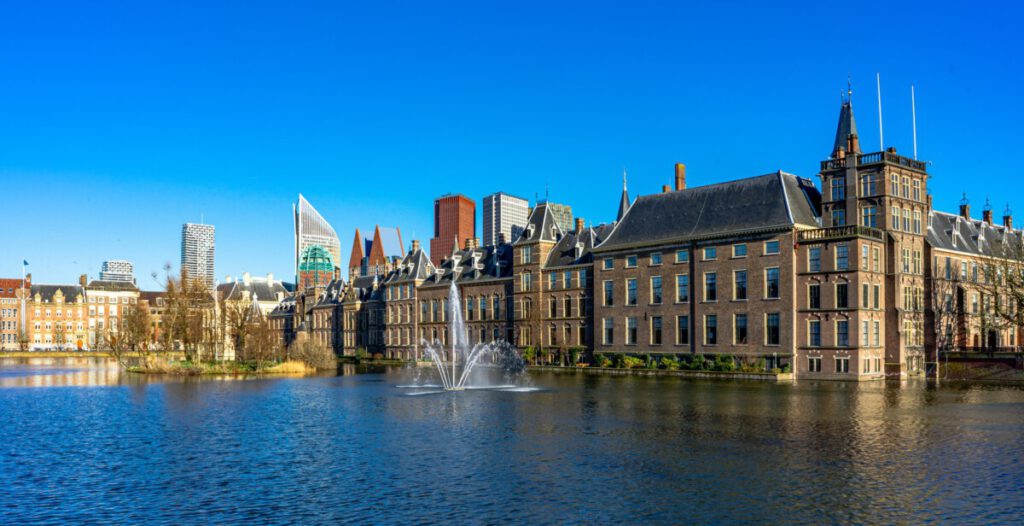
The Hague is the third largest city in the Netherlands, after Amsterdam and Rotterdam, and is the largest Dutch city on the North Sea coast. It has a population of about half a million.
Taking a train from The Hague to Amsterdam takes under an hour. Rotterdam, Delft, Leiden, and Gouda can all be reached in under a half hour. In short, The Hague is a super convenient location to live in, even if you work in another city in the Randstad.
The Hague hosts two universities— Leiden’s The Hague campus and The Hague University of Applied Sciences— so there are plenty of students around. However, The Hague is not a student city in the same way that Delft and Leiden are: there’s something for everyone here.
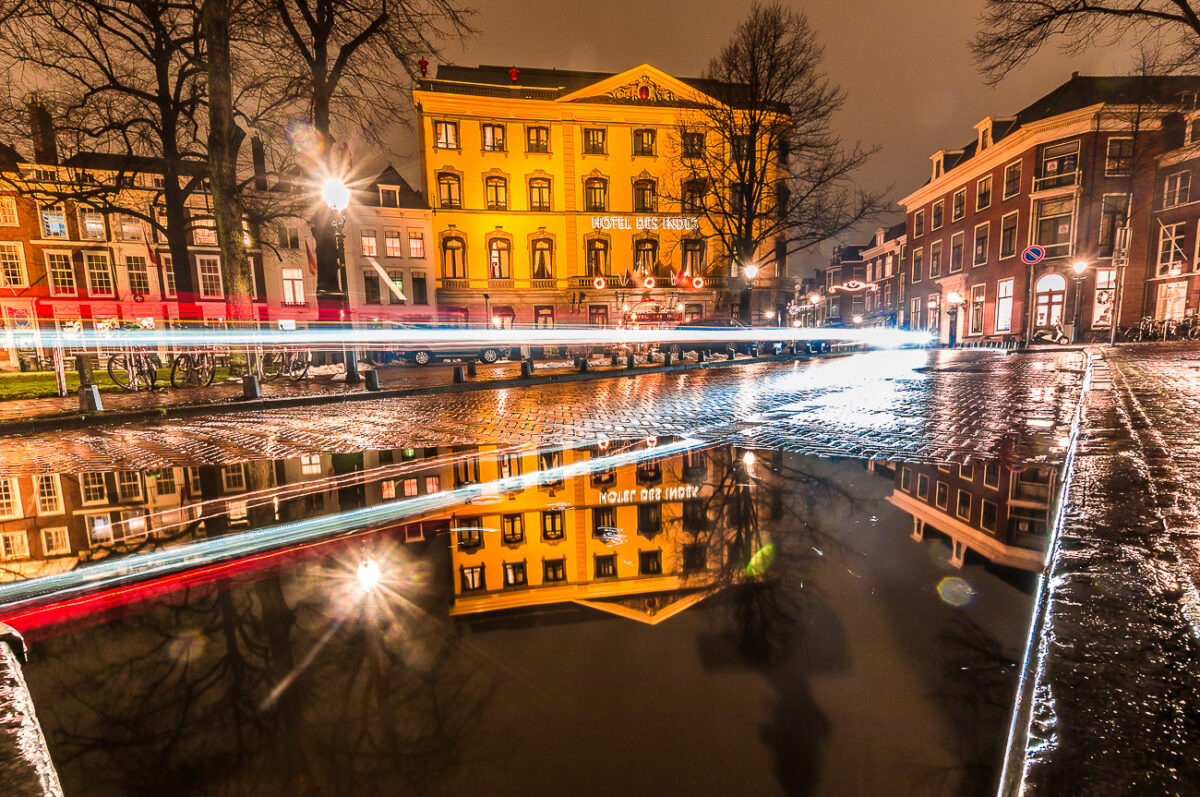
Moving to The Hague: what do I need to do as soon as I arrive?
Figuring out what I needed to do immediately upon arrival was probably the most stressful part of moving to The Hague. What on earth was this BSN everyone kept talking about? Did I actually need to pay 100 euros each month for health insurance? What does registering at the municipality even mean?
This section will break everything down for you — in reality, settling in to The Hague was not nearly as difficult as I had imagined it to be.
Moving to The Hague: registering at the municipality
The first thing you need to do when you arrive in The Hague, and have found a legal place to live, is to register at the municipality. For this, you need to make an appointment at the municipality building and show them some documents, such as your passport and housing contract. It often takes a couple of weeks to get an appointment, particularly in August and September, when lots of new students are arriving in the city.
Registering at the municipality is really important, especially if you’re coming from outside the Netherlands, because you’ll need a BSN (Burgerservicenummer) to do almost anything else in the country, including getting a phone contract, health insurance, and utilities for your home.
Moving to The Hague: Health insurance
Once you’ve received your BSN, you can get started with setting up your new life in The Hague. First things first: if you’re working, you absolutely need Dutch health insurance (even if you have the European Health Insurance Card (EHIC)— that’s only valid if you’re not working).
There are lots of different providers to compare, but most will provide basic insurance for about 100 euros a month. If you’re a student, or you have a low income, you can get almost all of this money back from the government each month as zorgtoeslag, or health insurance benefit.
Moving to The Hague: choosing a GP
You can choose your GP, or huisarts, freely. In The Hague, there are some practices set up specifically to serve internationals, such as the International Health Centre The Hague (IHCH). Your health insurance will always cover GP visits.
It’s definitely worth setting this up as soon as possible, because it is hard to get an appointment at short notice if you’re not already registered.

Moving to The Hague: how do I find a place to live?
As in most cities in the Randstad, The Hague is currently experiencing a housing shortage. This means that whether you want to buy or rent, prices are going to be high, and properties are going to be in high demand. Below you’ll find tips for both renting and buying in The Hague.

Moving to The Hague: finding a rental property
There are three main ways you can find an apartment or house in The Hague: rental agents, Facebook groups, or friends. Each have their advantages and disadvantages, of course.
Rental agencies
As far as rental agents, you can sign up with individual ones, to whom you will need to pay a one-time fee (which can be quite high, but they tend to be very effective in finding a nice place for you), or you can pay a monthly subscription to a website like huurwoningen.nl or funda.nl. These sites have a huge range of places — but of course, you’ll be competing with lots of other people for them.
Facebook groups
Facebook groups are really useful— often individual landlords will post properties here, or people looking for new roommates will also use them a lot. Most of my friends found their places through Facebook pages like Appartement Huren in Den Haag, Den Haag Housing, or Student Housing Den Haag. There is one problem, though— these pages are completely unregulated. This means that you’ll often find scammers here. Accordingly, you should never pay a deposit unless you’ve physically seen the apartment and received a rental contract.
Friends
Finally, your Dutch or already-living-in-The-Hague friends are an amazing resource when apartment hunting. They’ll often know someone who is looking for a new flatmate or tenant, or they’ll be able to share that you’re looking for a place on their Facebook page. Of course, you’ll need actual friends for this to work.
Moving to The Hague: things to bear in mind while renting
You can expect to pay between 600 and 1500 euros a month for a one bedroom apartment in The Hague, depending on location, whether it’s furnished or unfurnished, and what the dimensions are. It’s much cheaper to rent a multiple room apartment with other people— I pay 400 euros a month for a big room in a really nice apartment that I share with two other people.
It can be really handy to rent with a Dutch person if you’re a student. Often, landlords will ask for your income to be two or three times the monthly rent, or for a Dutch guarantor. That’s where your completely-innocent friendship will come in handy.
Finally, and tragically, it’s pretty unlikely that your landlord will allow you to have a pet— fish are probably ok, but that’s about it usually.
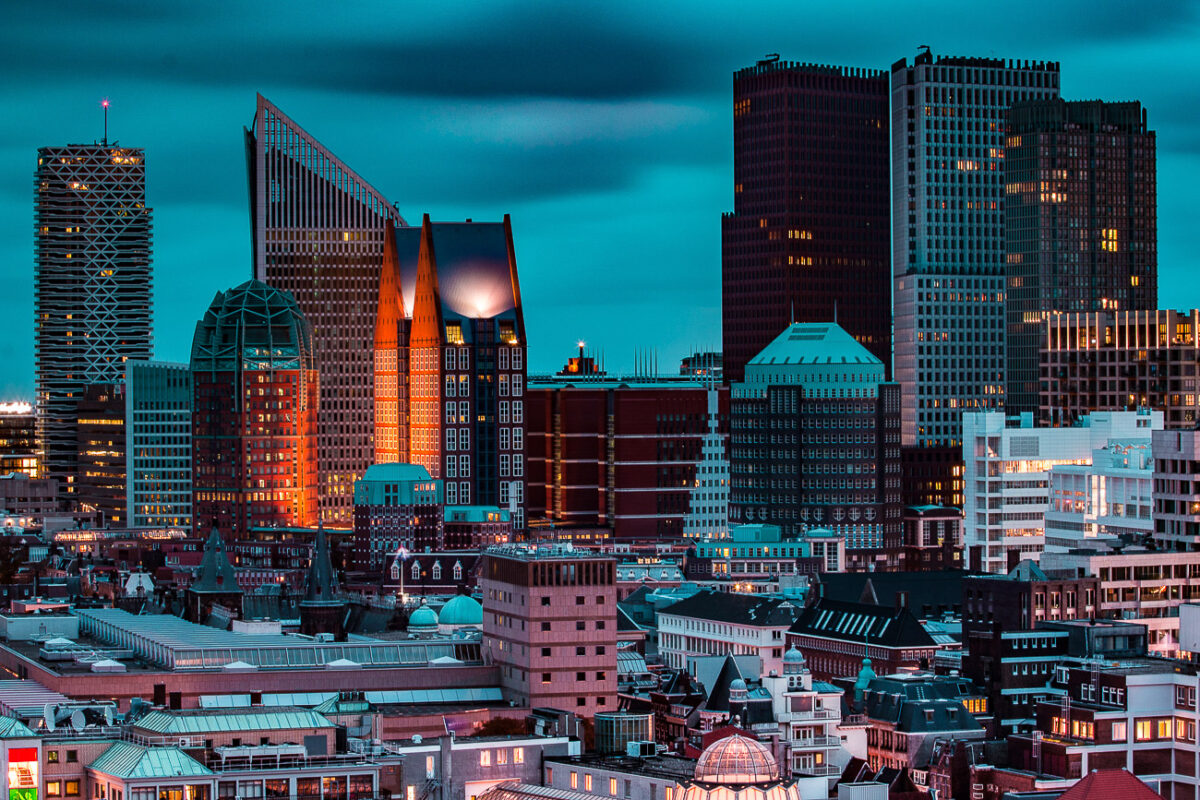
Moving to The Hague: finding a place to buy
Speaking of pets— that is, the main reason you would ever buy a property— how does it work if you want to buy a house in The Hague? Luckily, we have an article all about purchasing a home in the Netherlands. In short, even if you’re an expat, navigating the Dutch housing market is definitely possible- but, as with renting, you’ll need to be able to move fast.
Moving to The Hague: where should I live?
The Hague has a wonderful variety of places to live, ranging from the very posh to the nice and cheap. You can find yourself beside a market, a park, a forest, a canal — or beside a HMC Westeinde, a hospital that practices emergency helicopter landings in the middle of the night. So, choosing the right neighbourhood to live in is really important. How do you do that? By reading our The Hague Neighbourhood Guide.

Moving to The Hague: setting up your utilities
Whether you’re buying or renting a house, you’ll need to set up your own utilities- gas, water, electricity and internet.
The simplest is water: there’s only one provider, Dunea. They filter their water through the dunes at Scheveningen. There are lots of choices for gas and electricity, so check out our guide to setting up your utilities in the Netherlands. Internet is equally well catered for — you can get internet and TV for about 40 euros a month.
Apart from all that, you can expect to pay taxes for waste removal and waste water each year, coming to about 200 euros per person per year.

Moving to The Hague: how can I find work?
Ah, the question to top all questions — the one that makes moving to a new city seem like the most stressful thing on earth. Finding a job is always a bit of a struggle, but this section will let you know what the main opportunities for employment in The Hague are, whether you’re a student or an experienced professional. DutchReview also has a Facebook group that’s really useful for job hunting!
Moving to The Hague: part-time work and internships for students
As a student myself, this is an area I have quite a bit of experience with. The first thing to know is that if you want a part time job as a waitress, or in a store, those are super easy to find in The Hague. Although most places will advertise their vacancies in Dutch, they will often hire non-Dutch speakers as well. Generally, you’ll only earn the minimum wage in these jobs, but tips can add up.
Internships are often available at the many international organisations in The Hague, along with more local ones. Mostly, you will be working for these pretty much for free, but they’re one of the best ways to break into the industry you want to work in. Facebook pages such as Internships in the Netherlands and Students in The Hague are some of the best places to search for these, but your university should also be able to point you in the right direction. You can also check out our guide to internships in the Netherlands!
Moving to The Hague: main industries for jobs
The largest industries in The Hague are international organisations and the government, who employ 26 percent of the population. Business services employ another 19 percent, healthcare 14 percent, and leisure activities about 10 percent. Other industries include technology, wholesalers, and small businesses.
But if you’re not interested in any of these things, there are lots of other jobs available. You can check out our guide to finding a job in the Netherlands. You can also keep an eye on targeted facebook groups, such as Teaching Jobs in The Hague or Expats in The Hague.
Moving to The Hague: schools and childcare
Because of its large expat community, there are plenty of international schools in The Hague — such as the British School. If you want your children to attend a regular Dutch school, that’s also possible— depending on their age they may need to spend a year doing the international schakelklas, or linking class, which brings them up to speed in Dutch, English and maths, before they enter the Dutch education system.
As for childcare, there are a variety of options, depending on how much you want to work and how much your budget is. But in urban areas like The Hague, they’re all going to have waiting lists, so make sure to register your child early.
Moving to The Hague: cost of living
Like all of the Netherlands, The Hague can be expensive — though just by virtue of its rental prices, it’s a cheaper alternative to Amsterdam or Utrecht. There are lots of ways you can make it more affordable — avoiding Albert Heijn and the other major supermarkets, for one thing.
The Hague Market is the number one place to find cheap produce, meat, fish, cheese, nuts and bread. Besides that, Asian supermarkets are always good for cheap food, along with the usual suspects — Aldi and Lidl. And, of course, make sure you bike everywhere you can.
Moving to The Hague: getting around
Moving to a new city is always a bit disorientating, especially if you have trouble telling left from right (please tell me I’m not alone in this). The Hague is a really accessible city, whether you move around by foot, bike or public transport. Read on for detailed instructions on everything from OV Chipcards to where to find a cheap fiets.
Moving to The Hague: public transportation
As far as public transport goes, it’s super easy to make your way around The Hague. At any point in the city, you’ll be less than 10 minutes’ walk from either a tram or a bus stop, with most taking you to either Den Haag Centraal or Holland Spoor at some point in their route. They’re almost always on time, and only really crowded at rush hour or on rainy days. As with all public transport in The Netherlands, you can pay with your OV Chipcard.
From Den Haag Centraal, you can get the metro to Rotterdam, and you can get NS trains from Den Haag Centraal or Hollands Spoor to all major cities. It is important to note that public transport can get pretty pricey if you’re using it every day — which brings us to bikes!

Moving to The Hague: bikes, and where to find them
If The Hague is your first stop in The Netherlands, you probably don’t own a bike yet. Get one as soon as possible! The Hague is really bike-friendly, as with most Dutch cities. Biking for the first time in a big city is definitely nerve-wracking, but you get used to it super quickly. And it’s by far the most efficient way to get around— you’ll get places much faster by bike than by car or public transport.
But bikes can be expensive to buy new, and although Amsterdam is worse, bikes are often stolen in The Hague as well. So I’d advise getting a cheap bike— under 80 euros, for sure. Most bike shops will have a second hand section, but Facebook is more likely to be your friend here. People who are moving abroad will often want to get rid of their bike at short notice, so you can really snap up a bargain.
Your friends can also be a great resource— I got my bike completely for free from a friend’s relative, who was replacing her bike with a new one.
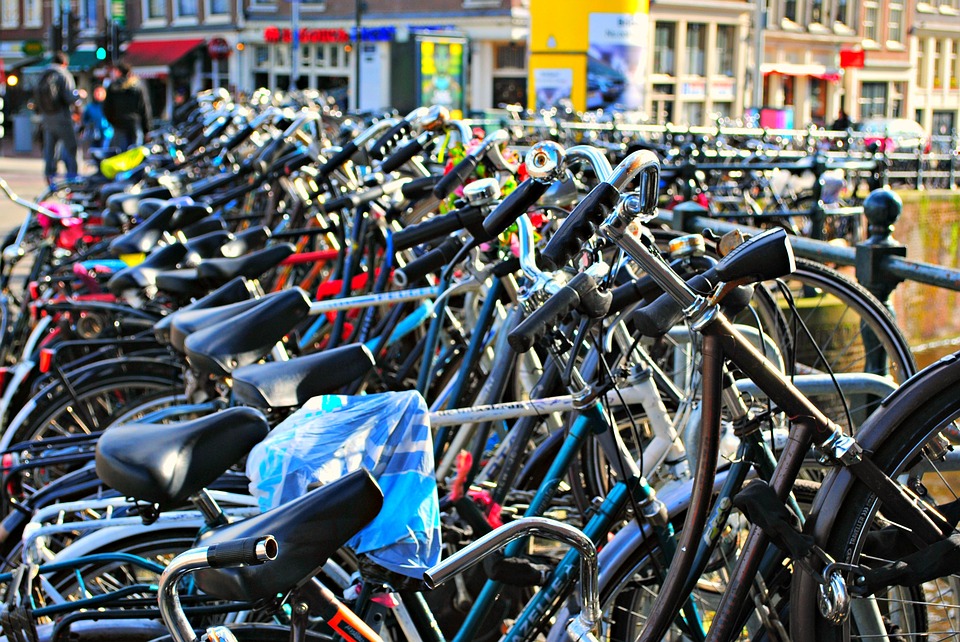
Moving to The Hague: walking around the city
If you live and work close to the centre, you might not even need a bike to get around (though you will miss out on the lovelier parts further from the centre). During my first year here, I didn’t own a bike- and luckily The Hague is really walkable.
On sunny days there’s nothing better than strolling by the magical Hofvijver, watching the ducks and imagining pushing Geert Wilders into the lake. But murderous thoughts aside, walking around The Hague is a really relaxing way to get to know the city.

Moving to The Hague: owning a car
As with most cities, car parking is hard to find and really expensive in The Hague, unless you live in the outskirts and have a detached house with space for a car. And given the public transport options, in my experience cars are totally unnecessary. But, because of rising public transport costs, you might find it to be the financially friendlier option, if not the most sustainable one.
Moving to The Hague: things to make you think and places to make you hungry
You can’t really say you’ve lived somewhere if you haven’t experienced its museums, cafes and nightlife. But how do you know which places are worth your time and money, and which you’d be better off avoiding?
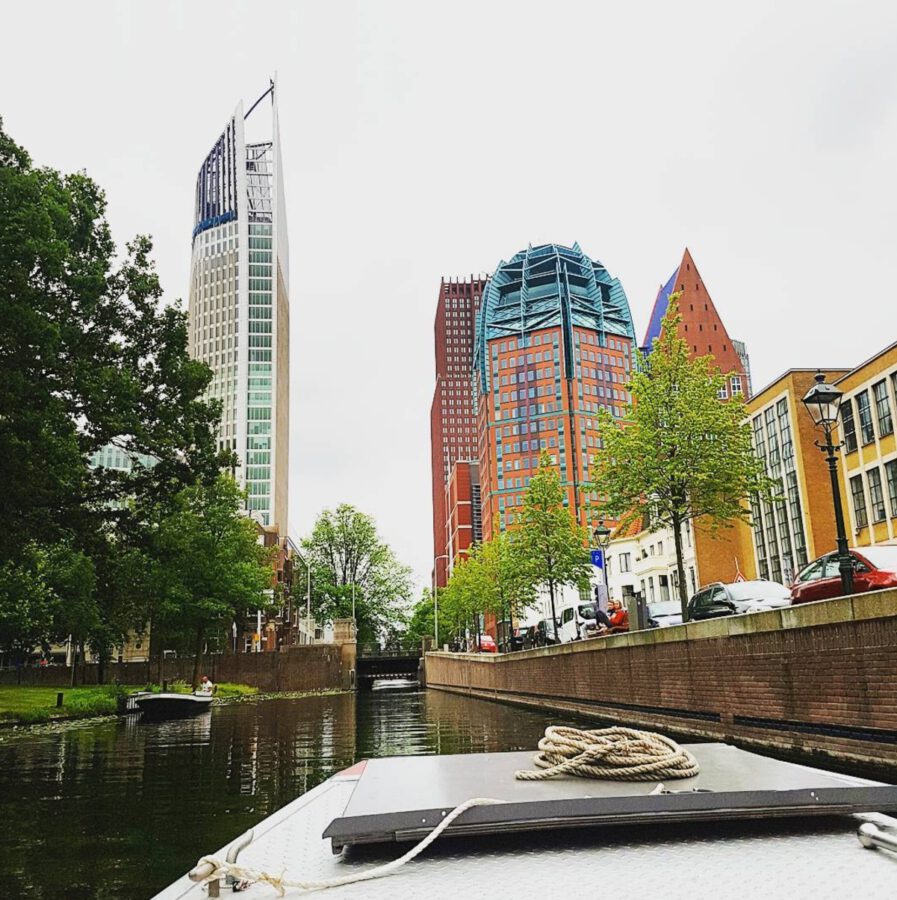
Moving to The Hague: culture
There are loads of art galleries and museums in The Hague, so you’ll never be lost for something to do. For classical art, check out the Mauritshuis; for modern art, the Gemeentemuseum. If you fancy a trip outside of the city, Voorlinden is an awesome contemporary art museum. For the history nerds, there’s The Hague Historical Museum, the Migration Museum, COMM (the Communications Museum), Panorama Mesdag and lots of other small museums.
If you have kids, or if you haven’t successfully grown up, Museon is really fun — it’s an interactive museum about culture and science. Also, there are lots of awesome events in The Hague — from Beethoven string quartet evenings at Bookstor, to interviews with authors and activists at Humanity House. You’ll find all of these in the events page on Facebook.
Moving to The Hague: food
After all that culture, you’re bound to be hungry. Luckily, The Hague has lots of delicious places to eat, whether you’re in search of breakfast, brunch, lunch, dinner, or a snack. Themed cafes like Bookstor (you guessed it, a cafe in a bookstore) and Mugs & Mermaids (who make blue superfood lattes among other things) are always fun. And for brunch, Teds Place cannot be missed! The bars at Grote Markt are gezellig to the max, and The Hague definitely doesn’t lack fine dining with establishments like Cencalli, either.

Moving to The Hague: green spaces
The Hague is famous for its many green spaces. Some of the loveliest are the Haagse Bos, a mature woodland in the centre of the city; Zuiderpark, a massive green area with farm animals, deer, and a rose garden; and the dunes at the beach, of course.
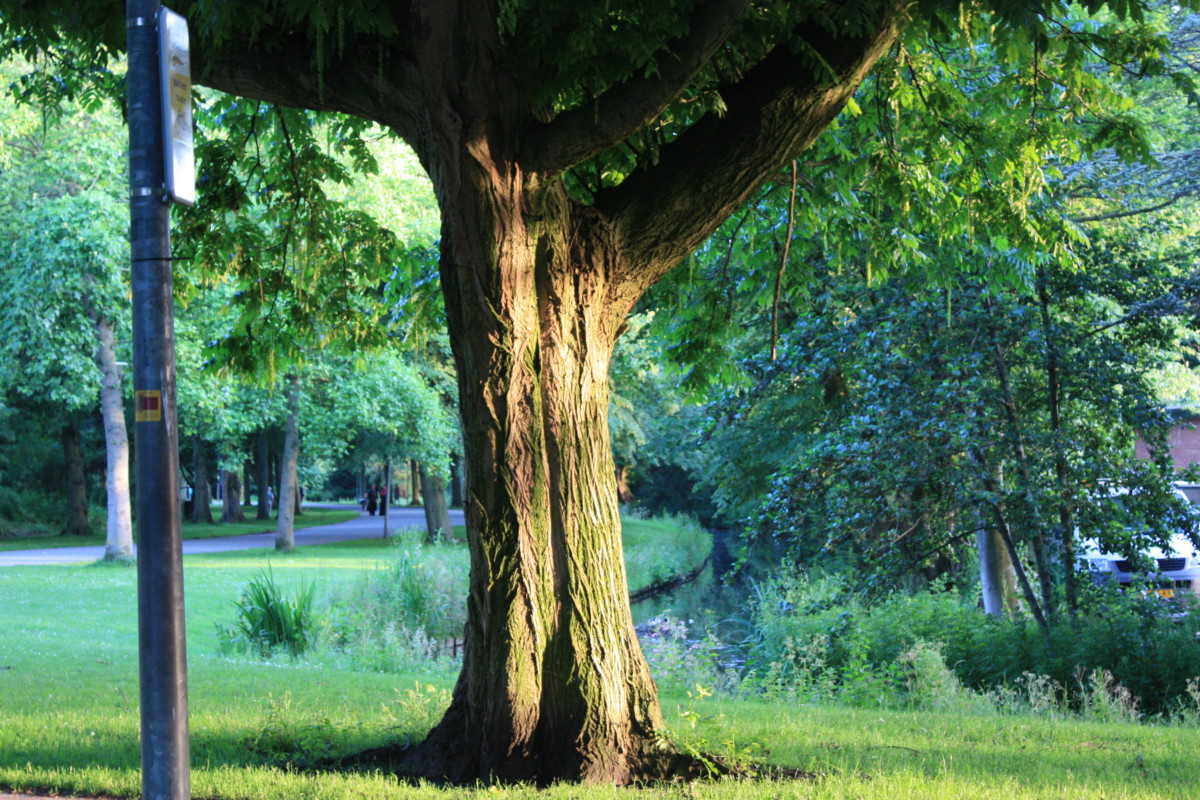
Moving to The Hague: nightlife
The nightlife in The Hague is notoriously poor, but with the influx of students the city has experienced in recent years, things are slowly getting better! Nightclubs like PIP, Paard and Havana will often do themed nights, and recently there was a Club Hopping night with golf carts to bring your drunken corpse from club to club.

Moving to The Hague: do I need to speak Dutch?
As in the rest of the Randstad, most people in The Hague are able to speak English really well — so you don’t have to worry about arriving and not being able to communicate with anyone. Most letters and communications from the municipality are available in Dutch and English as well.
Having said that, there are lots of benefits of speaking Dutch when living in The Hague. Unlike Amsterdam, most cafes and shops will hire you much faster if you speak even a little bit of Dutch. And if you want to successfully venture outside of the city centre into districts with local businesses, Dutch will be super useful.
In the neighbourhood I live in, Transvaalkwartier, most shops are run by people who don’t speak English. Turkish bakeries, Polish supermarkets, South American speciality stores — you’ll need Dutch to make the most of these. Also, at the famous Hague Market, Dutch is also useful if you don’t want to constantly mime how many peppers you want.
You can easily pick up a little bit of Dutch for free from friends, or learn it from Duolingo, but there are also plenty of formal opportunities — libraries offer free resources, and private classes are plentiful. If you’re a student, your university will more than likely offer free classes as well.
Moving to The Hague: how to make new friends
When you move to a new city, the most daunting part can often be making new friends. For me, as a student, this was a lot easier — I literally lived in a building with 400 other students for two years. But for people who come to The Hague to work, or as freelancers, meeting new people requires a bit more work.
The most obvious thing to do is to join some clubs or do some group activities that you enjoy. For my fellow introverts, there are book clubs! ABC The Hague has an awesome Feminist Book Club that meets every month or so, for example. Organisations such as Humanity House and Leiden University often host talks or other cultural events. For the sporty among us, clubs of all sorts abound — you can hike, play football, volleyball or tennis for example.
It can also be really nice to volunteer as a way of making friends— and also to get to know your new city in a different way. Volunteer The Hague is a platform where lots of organisations can post for volunteers, and it’s completely free.
The best thing about these options is that as soon as you make one friend, you can get them to introduce you to all of their friends. So even though it’s difficult at first, push through — soon you’ll have enough friends to fill a boat with: and then you can go boating around The Hague!
If you enjoyed our beautiful city pictures, you can see more in our best photos of The Hague. And if you liked reading this guide to relocating to The Hague, you’ll probably also like our Instagram, Twitter and Facebook pages.
Are you planning on moving to The Hague soon? Or have you settled down in The Hague recently? Have we missed any important tips or tricks? Let us know in the comments below!
Feature Image: Kevin Coellner
Editor’s Note: This article was originally published in January 2020, and was fully updated in January 2021 for your reading pleasure.

Dear Dutch Review (and Ailish in particular),
Thanks for the article. It would have been fantastic to had this information 8 years ago when we moved to The Netherlands.
Anyway I need to mention one part of the article that it is incorrect and to be honest a bit disrespectful and that may have consequences in the future.
From all the neighborhoods or places in The Hague that you can run away, you specifically recommend in your article to avoid leaving beside the HMC hospital. To be honest it is a really good place to leave. I haven’t heard an helicopter landing in the middle of the night in 8 years leaving beside the HMC. I have seen them during the day maybe twice per month?? and because the isolation of my apartment is quite good, I do not hear it if the windows are not open.
I would ask you to rectify the article because:
First, that sentence is not true. It is not a bad place or a place you have to avoid. In fact, leaving close to the hospital has some benefits. My son was born there and the check outs, emergencies or doctor appointments are close by. Also, I do not have any building in front of my place, so the open space is amazing and last but not least, my daughter loves in summer to see the helicopter because it is really once in a while!!
Second: The location is quite convenient with tram lines close by, 2 minutes by bike to downtown and 15 minutes by bike to the beach.
Third, I feel that pointing out this particular place could have an an economic impact on all of us who live in that area. If any of us wants to rent, or sell the house, this article could affect the price, or the viewings of the house. Have you thought about it? This page is followed by thousands of people and you are only pointing out a very specific location as the place to avoid.
Therefore it would be nice if you can rectify the article by removing that sentence.
Thanks in advance.